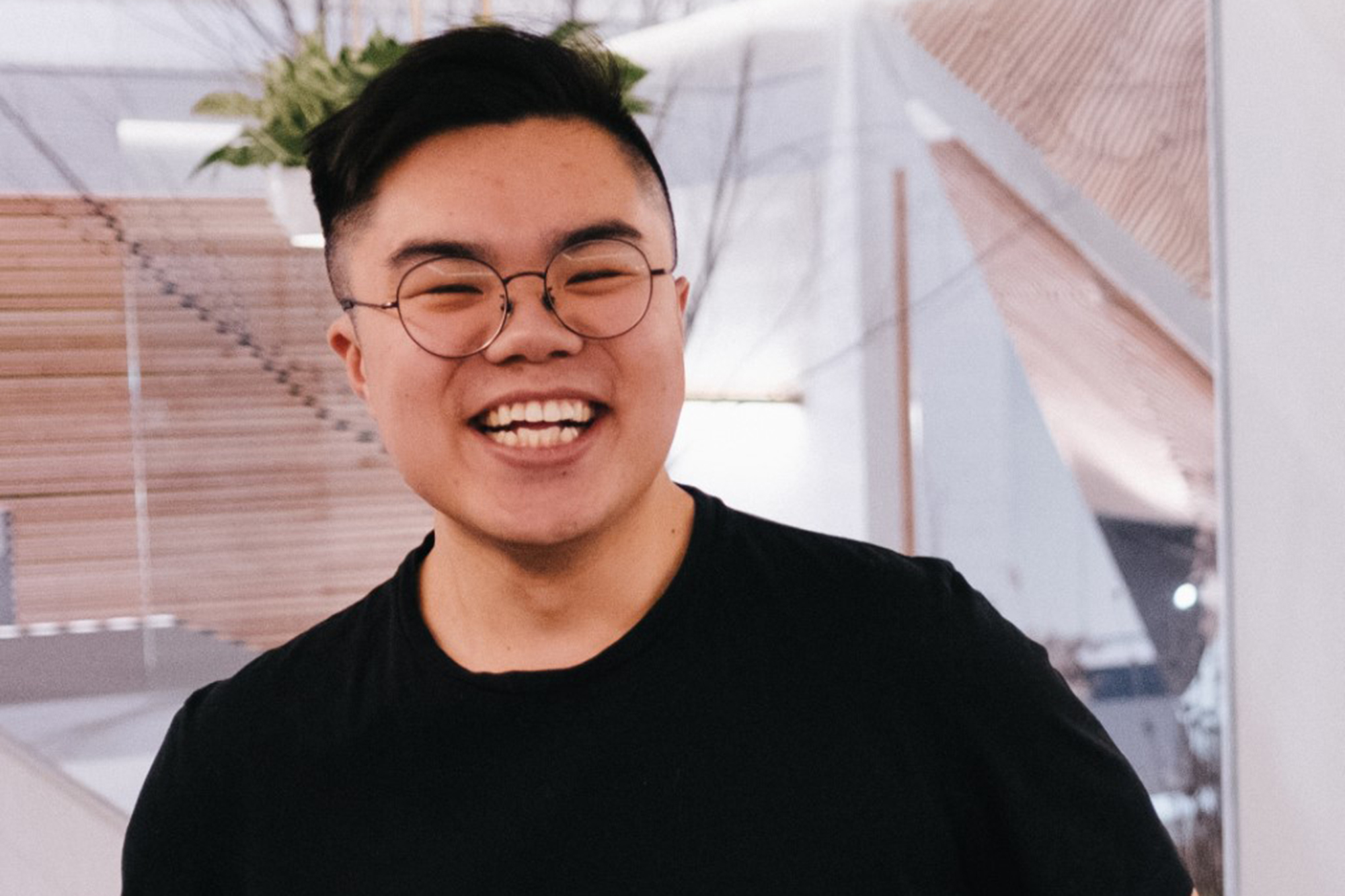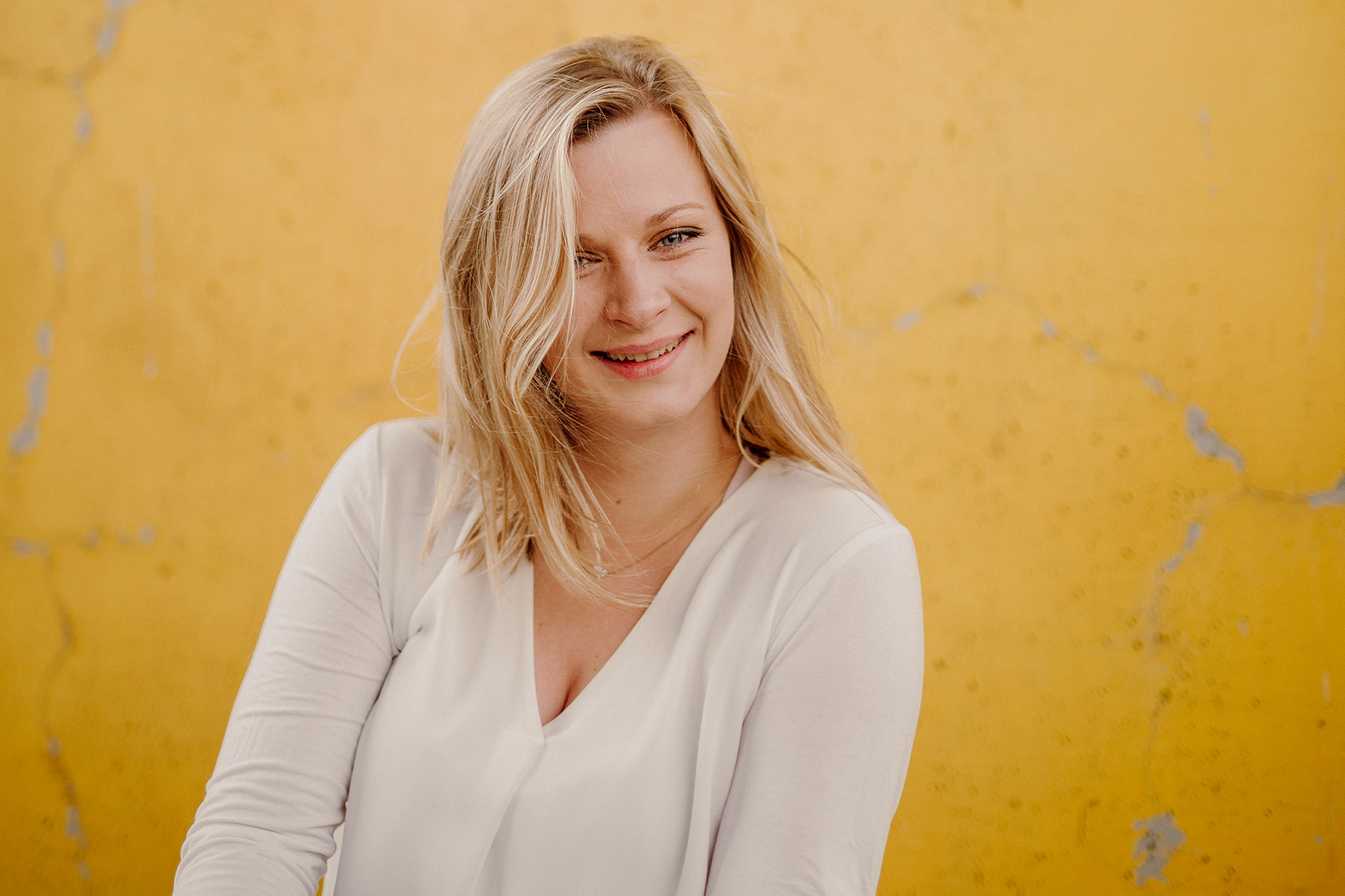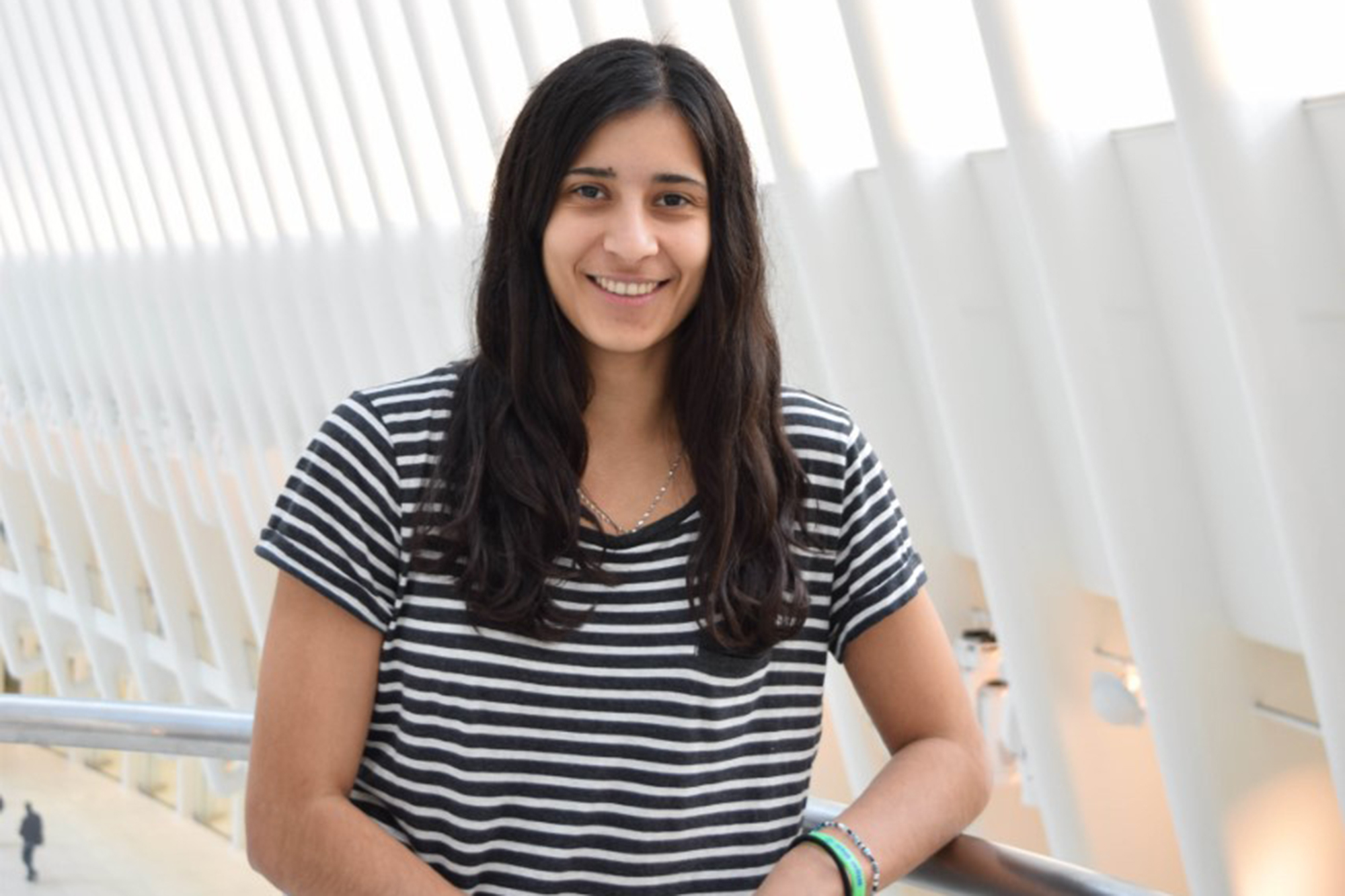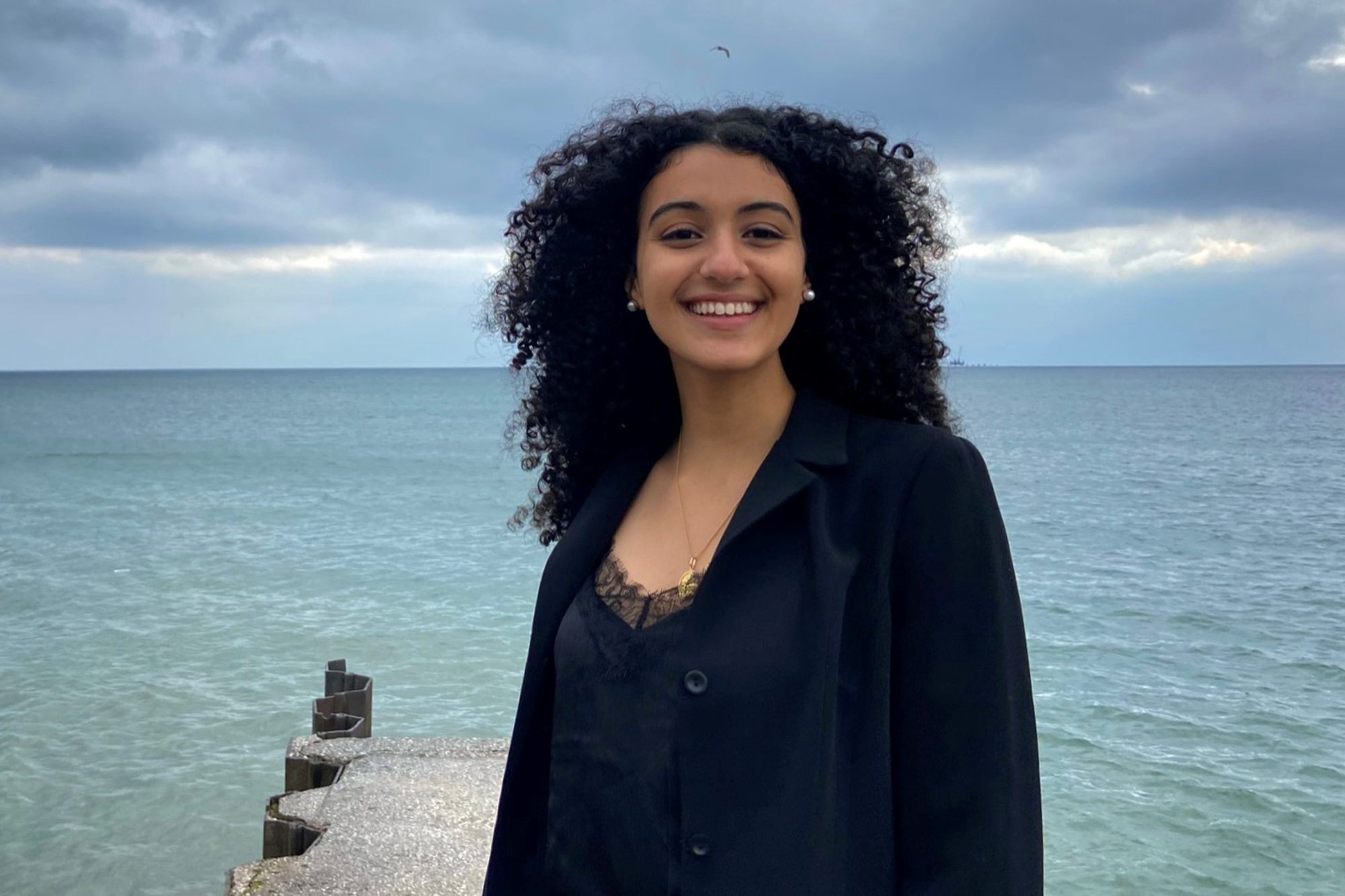03.05.21 - Q&A: This year's Student Leadership Award recipients talk about their time at Daniels, the pandemic, and what's next
Four graduating Daniels students were among the recipients of this year's University of Toronto Student Leadership Awards, which recognize exemplary service and commitment to the university. We asked them about their time at Daniels, their advice for new students, and what they're planning to do now that they've finished school. Their answers are below.
Kurtis Chen

Kurtis was this year's GALDSU president, and he's an executive member of the Toronto Society of Architects — the youngest one in the society's history. "I'm really interested in standing up for the profession in general, and also in creating a more equitable and inclusive environment at Daniels," he says. He'll be receiving his Master of Architecture this spring.
What was it like finishing your degree during the pandemic?
I gained a little weight. Biking down to work or to school was more a part of my life than I thought it was. But actually, in terms of my education, I think I was pretty lucky. I was in my third year, so I'd developed a network of peers and support that I could rely on.
This year being virtual wasn't ideal, but it has been better than I could have expected. But I'm speaking from the perspective of someone who's finishing the program, which is totally different from the perspective of someone who's new.
I think this year has shown has the role of technology in how we work is radically changing. I see remote work as opening up more opportunities for collaboration across borders.
What are your post-graduation plans?
I'm currently looking for work. And I'm continuing my work with the Toronto Society of Architects.
What advice would you give to a new Daniels student?
I think a strength of the Daniels program is that it accepts a diverse range of students. For instance, I came from film and advertising. So, what I'd say is: understand the value that you bring as someone coming from a non-architecture background. Leverage that as not only an important experience but as something you can bring to the table that's different from what everyone else is working on.
I kind of wish that in first year I didn't take the capital-A architecture part of it so seriously. Studying here is a really incredible opportunity to explore what you're interested in and why you decided to do your masters in architecture.
Do you have a favourite Daniels memory?
I guess my first year. Jumping into a professional Master of Architecture program coming from film was extremely challenging, but also extremely rewarding.
The Daniels Faculty is entering a period of rapid change, with the return to in-person learning and the arrival of a new dean. What do you hope will happen at the school?
Mass timber is the material of the future. Everyone is talking about mass timber, and everyone wants to build with mass timber. Here we are now, connected to the forestry program, where they're doing incredible research on mass timber and materials science. I think leveraging that opportunity and having more collaboration between design and cutting-edge forestry research could be really important. Daniels could become a hub for mass timber research globally.
Yana Kaiser

Yana has been an active volunteer throughout her time at the Daniels Faculty. She served as GALDSU's social chair in 2019, organized several guest lectures, and co-created of Interiors of Isolation, a publication of student drawings related to the experience of living through the COVID-19 pandemic. She'll receive her Master of Architecture this spring.
What was it like finishing your degree during the pandemic?
It was definitely hard. So much happened during this time. In October, I moved back to Germany, to the middle of nowhere. I couldn't even get takeout food because I would have had to drive 20 minutes by car to get to the closest restaurant.
Doing thesis in almost complete isolation was definitely mentally challenging. I mean it was really hard, but we did it. And it was such an odd moment when it was done, because I really missed celebrating that milestone with my peers, and with my friends. I was happy that I had my parents with me, so I could celebrate with them. But I felt robbed of graduation, almost.
But a lot of good things happened, too. I'm still working on Interiors of Isolation. We just got funding from GALDSU to print a run of books. And in February I started an internship at Bjarke Ingels Group, in Copenhagen, so I've been working full time there and also teaching as a TA for undergraduates.
What are your post-graduation plans?
I'm planning on living in Copenhagen for the next few years and getting some experience in Europe. I also want to get registered in Canada, so I'm trying to get some of my international experience recognized for the license.
Do you have a favourite Daniels memory?
One of the highlights for me was definitely my option studio. We were able to go to Newfoundland and work with the community there. It was a very hands-on opportunity and it was the only opportunity I had to venture out a little bit into landscape architecture.
What advice would you give to a new Daniels student?
Try to get involved as much as possible. Either you're a part of GALDSU, or you're part of The Annual, or if the café is open you can do volunteering at the café. All of those things are extracurriculars that can really help you get to know people, and when you get to know people you get to know skills.
Those can sometimes be really practical skills, like figuring out a Rhino command. And you can also find out about opportunities. For instance a lot of people are afraid to travel because of the financial burden, but there are many opportunities at Daniels to receive funding.
Shalice Coutu

Shalice was the coordinator for the inaugural year of the Daniels Faculty's graduate mentorship program. She also served on GALDSU this year, as a third-year representative. She'll receive her Master of Architecture this spring.
What was it like finishing your degree during the pandemic?
I was actually fortunate. I struggle with ADHD, so I found online learning way more helpful than in-person learning, because it's very distracting to be in a classroom. Online everyone is muted and you just hear the prof.
The social side of things was definitely difficult. I live alone, so I tried to go on outdoor walks with friends as much as I could, keeping safety and safe distances in mind. Overall it was actually a way better year than I thought it would be.
Do you have a favourite Daniels memory?
I think it would probably be being in studio, late nights, and ordering huge platters of sushi with a bunch of friends. It was always the times in the studio when it was late at night and we were all kind of stressing over our reviews together.
What are your post-graduation plans?
I'm originally from Saskatchewan, but I think I'll stay in Toronto to work here and start to get my hours for getting licensed. I don't have any actual work lined up, but I'm going to start applying soon.
What advice would you give to a new Daniels student?
One thing I learned at Daniels is to never be shy about approaching upper-year students, especially when you're all in studio together. We have a really amazing community, and everyone is always so excited to help each other.
Also, take advantage of some of the programs that Daniels offers, including the mentorship programs. Just get involved where you can, because that three years is very short. The more time you spend in studio and meeting a bunch of people, the better memories you'll have when you walk out of there.
The Daniels Faculty is entering a period of rapid change, with the return to in-person learning and the arrival of a new dean. What do you hope will happen at the school?
I was a TA for this year's first-year MArch design studio, which was a First Nations project. That was an amazing change to see, that we're bringing First Nations into the core studio. I hope there are more electives that really focus on First Nations architecture, but also just First Nations culture itself and maybe ways of integrating that culture into design.
I'd also like to see us rethink this idea that we need to be in studio until five in the morning every day leading up to reviews. It's such a bad habit to expect that insane amount of work. It's tough on our bodies, and on our mental health.
Randa Omar

Randa was this year's AVSSU president. She was also a leader of the Student Equity Alliance, a group formed out of the Daniels Faculty's three student unions to address issues of diversity and equity at the Faculty. On top of all that, she was a co-founder of Making Difference, a student club that aims to empower women and nonbinary people in the design fields. She'll receive her Bachelor of Arts in Architectural Studies this spring.
What was it like finishing your degree during the pandemic?
It was challenging, but it also opened up a lot of opportunities that I don't think would have been opened up otherwise.
With remote learning, it can be more difficult to ask questions. It's just more difficult to learn when you're at home alone and you're not in a studio environment.
But I think the good thing about being online is that it was easier to organize the community. The shift to remote working made community discussions more accessible in many ways. I think that helped with new initiatives like the Student Equity Alliance and Making Difference. Because of the pandemic, people wanted new ways to build community.
What are your post-graduation plans?
I just heard last week that I’ve been fortunate enough to receive an NSERC award to do research under the supervision of Dr. Brady Peters. I've been wanting to work with him ever since I took ARC180 in first year. That class was my first introduction to parametric design, and it inspired me to go into the technology stream.
I'll also be taking the summer to work on my portfolio and to apply for jobs for the fall.
Do you have a favourite Daniels memory?
Peter Sealy's class, Close Readings in Architecture. That was a turning point for me. It made me feel like I had a place in architecture. I found a lot of my interests in the history courses.
Also, co-managing and volunteering at the café. That was always very joyful. Everyone likes coffee and muffins, so the café brought everyone together.
Some of my favourite memories are being at studio at three in the morning, working on models with my friends for ARC280. There’s something about bonding over cutting cardboard.
What advice would you give to a new Daniels student?
I would advise them to engage with the Daniels community and support their peers, especially their equity-seeking peers. And I'd tell them, if they don't feel like they have a community then they can just create their own, whether that's by volunteering at the café, or by being an orientation leader, or by creating their own clubs.
I would also say that they can reach out to professors throughout the university and express interest in their work or in speaking to them. It's a really great way to learn from people, and to learn outside of the classroom. That's something I wish I knew about earlier, because I asked questions in class but was always kind of shy about bothering professors outside of class.
Also, use the resources. My favourite one is the Writing Centre. The Writing Centre is absolutely amazing. The instructors can help with anything from brainstorming what to write, to revising, to figuring out how to cite. They can also help with more visual projects. I wouldn’t have made it to graduation without them.
The Daniels Faculty is entering a period of rapid change, with the return to in-person learning and the arrival of a new dean. What do you hope will happen at the school?
I'm looking forward to Dean Du coming in. I know her work in the urban design field deals with social issues. I really hope that kind of understanding, combined with her own experience working in Hong Kong, will bring new perspectives to the Faculty.
I just really hope that the Faculty becomes more diverse and prioritizes equity and being an inclusive learning and working environment. That's really all I want.

